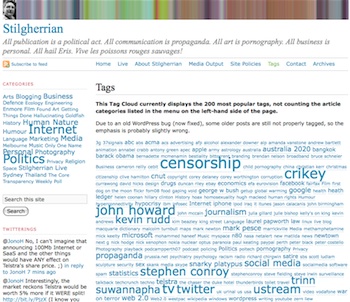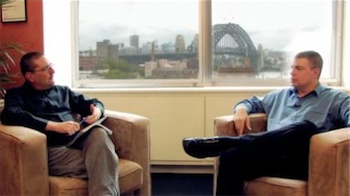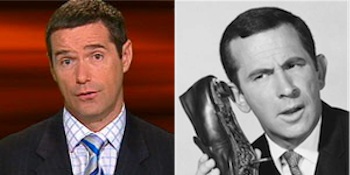
Yes, the story of the day is the astounding news that Australia’s new National Broadband Network will be 100Mbit/second Fibre to the Premises (FTTP) — and government-owned!
I’m part of Crikey‘s massive coverage, which kicks off with an editorial, Bernard Keane’s Huge, historic and nationalised: broadband goes ballistic and Fibre To The Node becomes Fibre To The Nerd.
My contributions are A massive and much-needed catch-up and Crikey Clarifier: National Broadband Network.
My friend and colleague Mark Pesce also has 100 million bits per second: you call that fast? And there’s plenty more — some of which is behind the paywall.
As Bernard Keane says, “It will take days — perhaps weeks or months — to work through all the possibilities of this, technically, commercially and politically.”
It’s also a massive face-saver for the minister, Senator Stephen Conroy. Instead of being sacked for screwing up the original tendering process, he’s being given command of the biggest infrastructure project in Australia’s history. Just why does he get this lifeline, I wonder?
This is a massive shift in Australia’s communications policy. Stay tuned.




